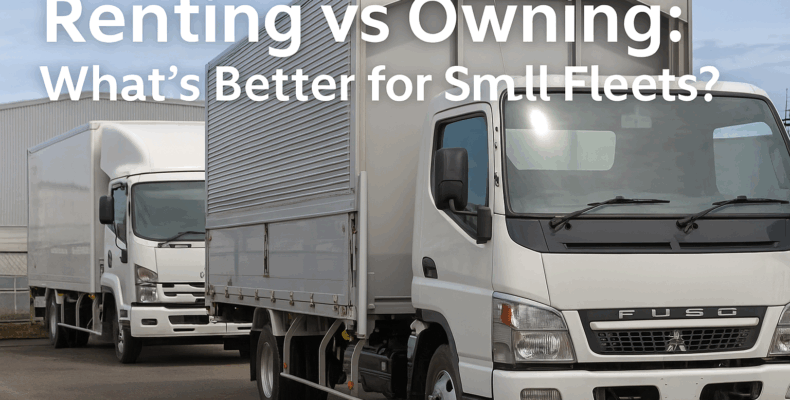Renting vs Owning: What’s Better for Small Fleets?
When running a small fleet, choosing between renting and owning trucks can significantly impact your business’s growth. Each option offers unique benefits. However, the best choice depends on your cash flow, goals, and long-term strategy.
This guide compares both options and helps you decide which suits your fleet business. Additionally, we introduce trusted exporters for those considering used Japanese trucks.
Let’s explore your options!
Why This Decision Matters
Fleet costs can either boost your profits or drain your resources. Trucks are essential, yet expensive. Choosing the right approach—rent or own—affects:
-
Operating budget
-
Monthly cash flow
-
Maintenance costs
-
Vehicle availability
-
Long-term asset value
Therefore, understanding the pros and cons is essential.
Option 1: Renting Trucks – Flexible but Costly Long-Term
Advantages of Renting
-
Low upfront investment: Ideal for new businesses or those with limited capital.
-
Access to newer models: Many rental companies offer recent trucks with better fuel efficiency.
-
Maintenance included: Fewer unexpected repair costs.
-
Quick scaling: Easily add or reduce fleet size as needed.
Drawbacks of Renting
-
Higher monthly payments: Over time, renting is more expensive.
-
No ownership: You don’t build equity in the vehicle.
-
Contract restrictions: Limited mileage or specific usage terms may apply.
In short, renting gives you flexibility but limits long-term value.
Option 2: Owning Trucks – More Control, More Responsibility
Advantages of Owning
-
Lower total cost: After purchase, there are no rental fees.
-
Asset value: Owned trucks can be resold later.
-
No restrictions: You decide how, when, and where to use the vehicle.
-
Better customization: You can modify the truck for specific needs.
Drawbacks of Owning
-
Higher upfront cost: Initial purchase requires more capital.
-
Maintenance burden: You cover repairs and servicing.
-
Depreciation: Truck value decreases over time.
Still, ownership gives you long-term financial control.
Which Option is Best for Small Fleets?
Here’s a quick comparison:
| Factor | Renting | Owning |
|---|---|---|
| Upfront Cost | Low | High |
| Flexibility | High | Medium |
| Monthly Payments | Ongoing | None after loan or full pay |
| Maintenance | Usually included | Your responsibility |
| Long-Term Cost | High | Lower overall |
| Customization | Limited | Full control |
Verdict:
If you’re just starting out or facing uncertain demand, renting may help. However, for stable businesses, owning used trucks is more cost-effective and profitable in the long run.
Why Japanese Used Trucks Are a Smart Investment
Used Japanese trucks like the Hino Dutro, Mitsubishi Canter, and Isuzu Elf offer:
-
Excellent fuel efficiency
-
High reliability
-
Easy access to spare parts
-
Affordable pricing
-
Proven durability in harsh environments
Because of their strong build and low mileage, they are ideal for small businesses worldwide.
Where to Find Trusted Used Japanese Trucks
Buying from a reliable exporter is critical. We recommend these Top 5 Trusted Japanese Used Truck Exporters for Global Buyers:
These companies offer:
-
Safe and verified transactions
-
English-speaking customer support
-
Detailed inspection reports
-
Global shipping (FOB, CIF, etc.)
No matter your country—Kenya, Zambia, Fiji, Jamaica, or the Caribbean—these exporters deliver quality and trust.
Final Thoughts
Your fleet is the heart of your business. Choosing to rent or own your trucks is not just about money—it’s about vision, flexibility, and long-term growth.
Used Japanese trucks give you the power to own high-quality vehicles at a fraction of the cost of new ones. Combined with the support of trusted exporters, owning might just be the smarter, more sustainable choice.
Ready to make the move?
Explore the best exporters here:
👉 https://everycar-review.com/2023/12/09/top-recommended-japanese-used-car-export-companies-for-international-customers/
